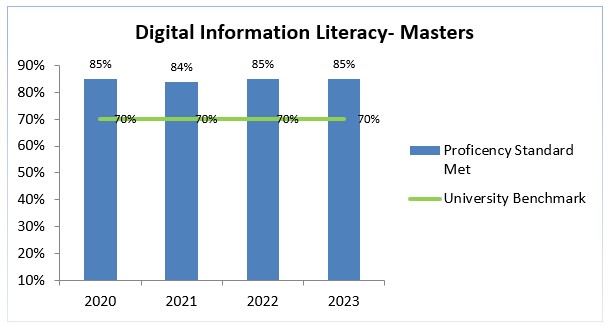AMU and APU students are expected to demonstrate proficiency in the following learning areas upon completion of any academic program in any discipline:
- Specialized/Industry Knowledge addresses what students in any specialization, major field of study, or career pathway should demonstrate with respect to that specialization.
- Broad and Integrative Knowledge asks students to bring together learning from industry knowledge, experience, and/or different fields of study to discover and explore the implications of concepts and questions that bridge essential areas of learning/practice as well as integrate their knowledge to advance solutions in support of a humane, just, and democratic society.
- Intellectual Skills includes analytic inquiry, use of information resources, engaging diverse perspectives, ethical reasoning, quantitative fluency and communicative fluency.
- Applied and Collaborative Learning emphasizes what students can do with what they know. Students are asked to demonstrate their learning by addressing unscripted problems in scholarly inquiry, at work and in other settings outside the classroom, individually and in teams.
- Civic/Democratic and Global Learning recognizes higher education’s responsibilities both to democracy and the global community. Students engage in integration of their knowledge and skills by addressing and responding to civic, social, environmental, economic, equity, inclusion, and social justice challenges at local, national, and global levels.
- Digital Information Literacy is concerned with responsibly, safely, ethically, effectively and efficiently accessing, evaluating, collaborating, organizing, and distributing information in the digital world. It includes using tools, technologies, techniques, and best practices, to develop responsible and safe consumers and communicators of information in the digital information world to support research and to solve real world problems.
For more information regarding APUS' Institutional Learning Outcomes please visit APUS' catalog: Student Learning Outcomes and Assessment.
A snapshot of student achievement, in reaching APUS' Institutional Learning Outcomes, is captured using assessment tools within the classroom. Signature assignments, found throughout each academic program, are one measure used to assess students’ success. When aggregated, the results show proficiency in meeting our institutional learning outcomes. American Public University System considers a student’s performance on a signature assignment to show proficiency when an 85% is earned. APUS strives to have 70% or more (university benchmark) of students reaching the 85% proficiency standard. When this benchmark isn't met, action is taken to improve curriculum and instruction.
The below charts show the success rate of APUS students demonstrating proficiency for each ILO area at the Associate, Bachelor, and Master levels.
Associates
Associate Level - Student Results
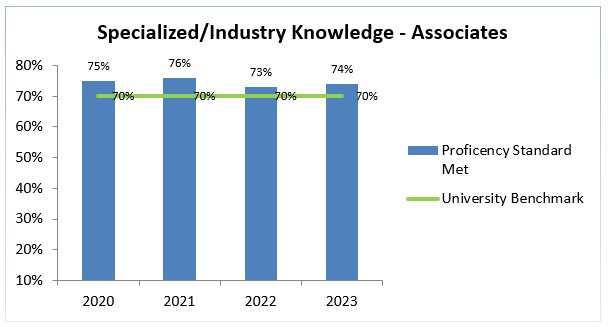
Associate Level - Student Results
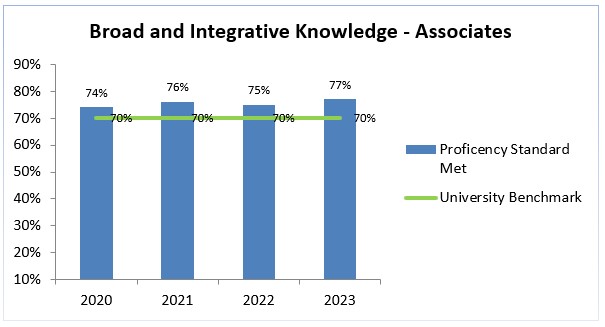
Associate Level - Student Results
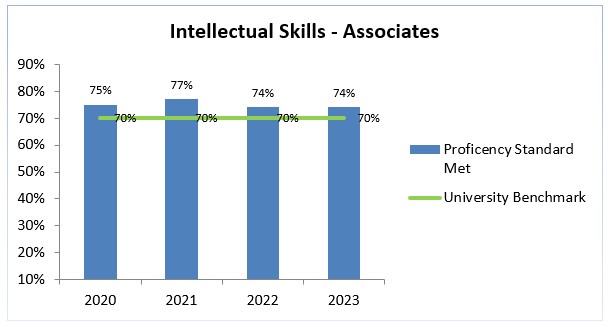
Associate Level - Student Results
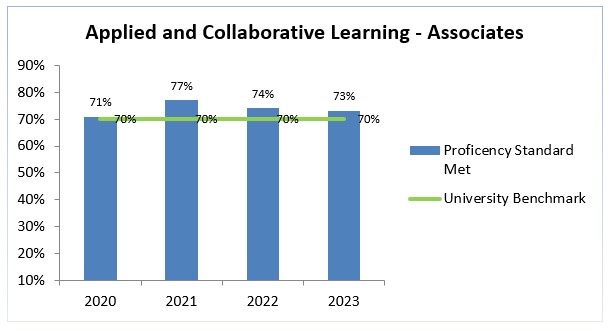
Associate Level - Student Results
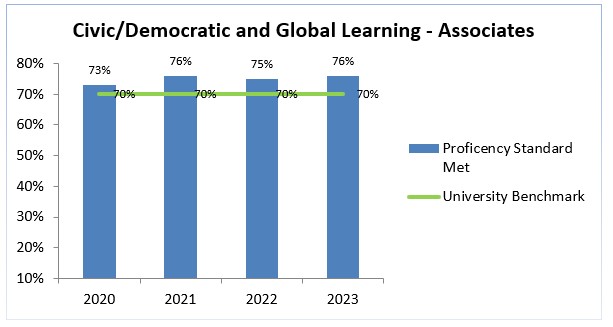
Associate Level - Student Results
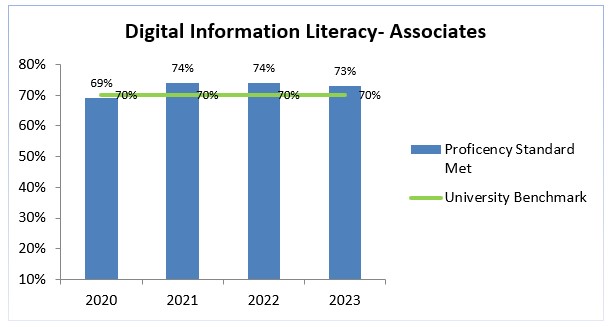
Bachelors
Bachelor Level - Student Results
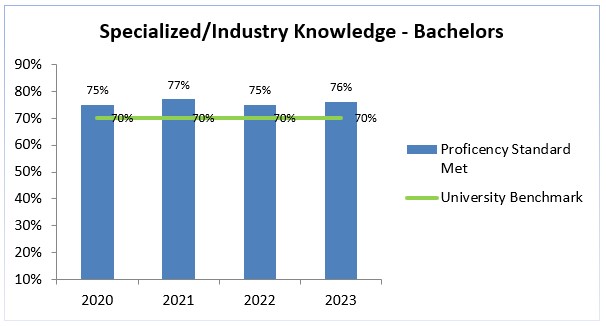
Bachelor Level - Student Results
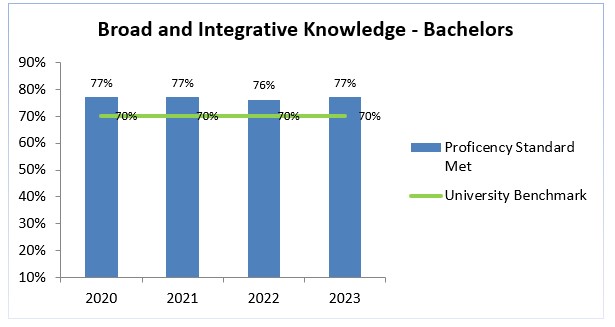
Bachelor Level - Student Results
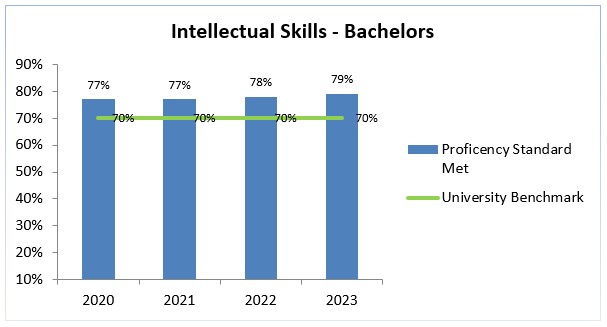
Bachelor Level - Student Results
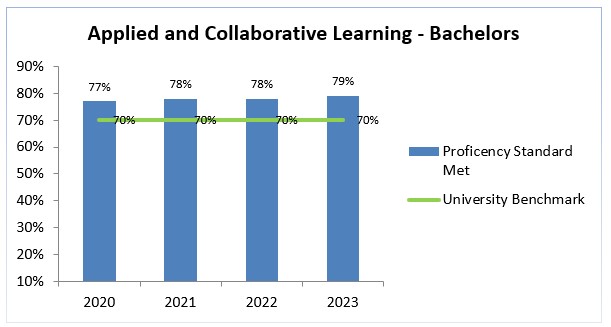
Bachelor Level - Student Results
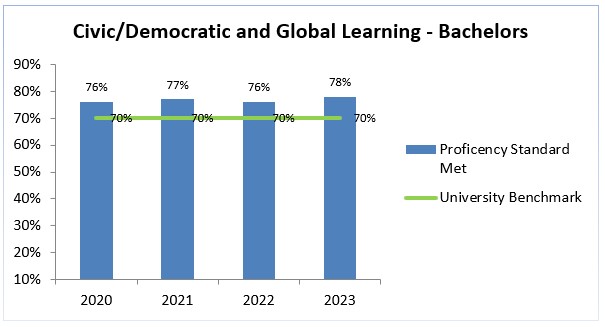
Bachelor Level - Student Results
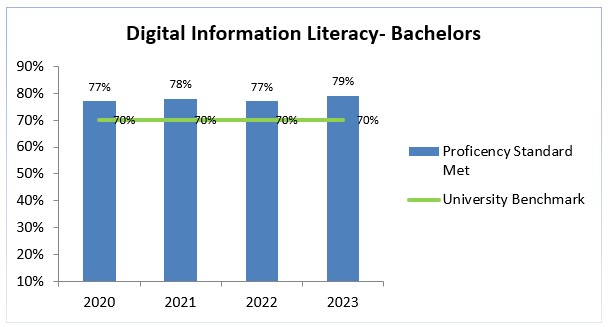
Masters
Master Level - Student Results
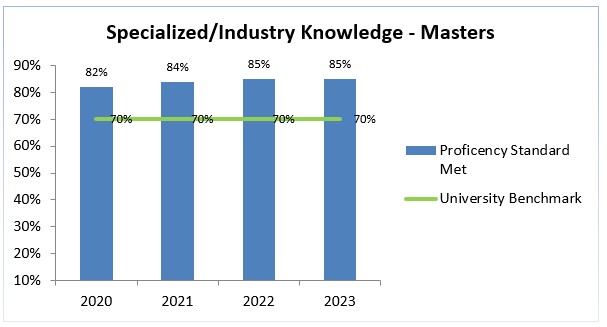
Master Level - Student Results
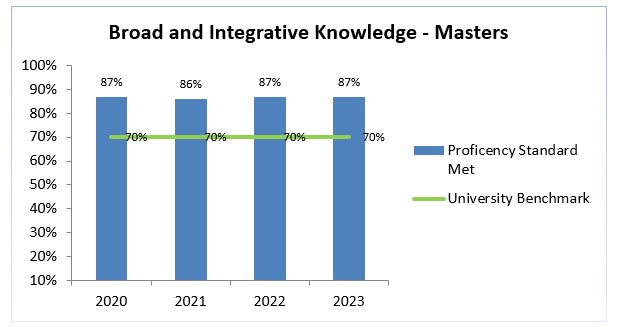
Master Level - Student Results
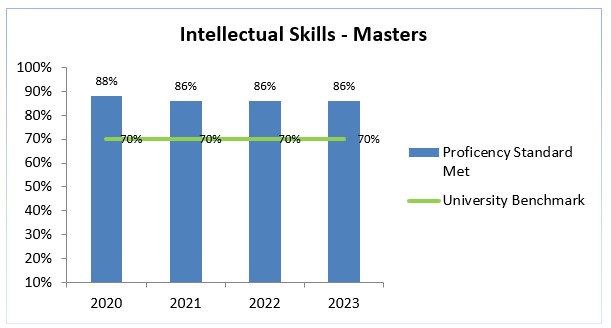
Master Level - Student Results
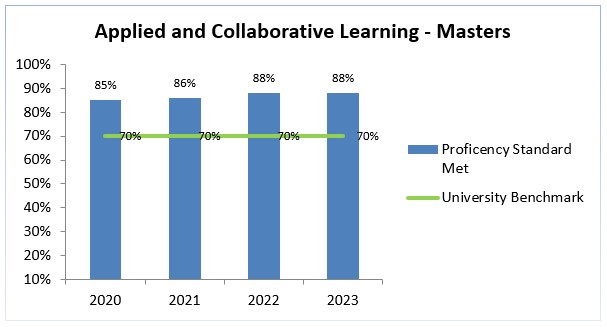
Master Level - Student Results
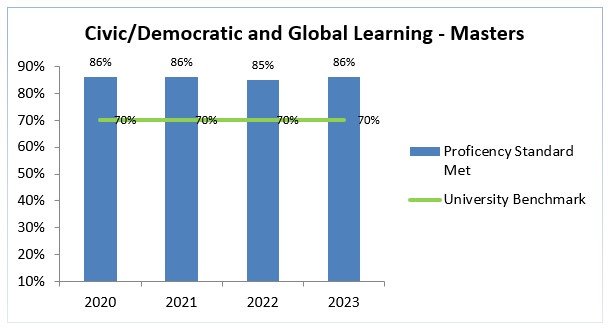
Master Level - Student Results
